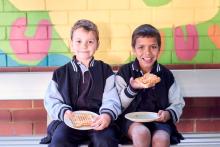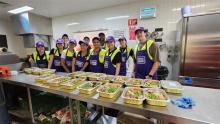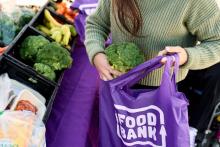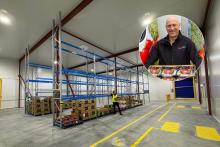Helping children get back to school after an illness or simply ensuring every child has access to breakfast each morning are some of the ways WA’s not-for-profits are making a difference.

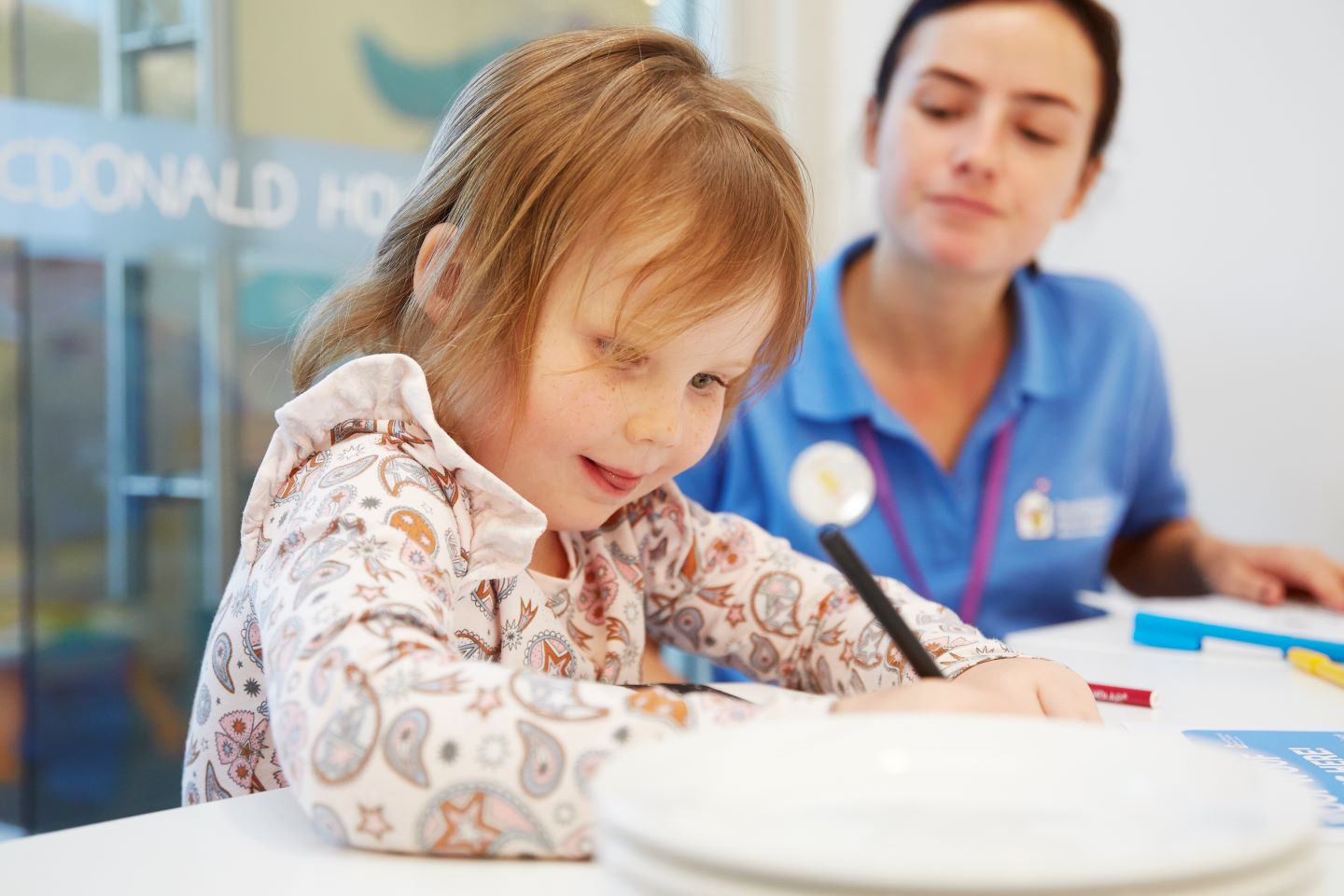
Helping children get back to school after an illness or simply ensuring every child has access to breakfast each morning are some of the ways WA’s not-for-profits are making a difference to the lives and education of children in our state.
One of the key areas to improving educational inequity include addressing the issue of lack of nutrition for children affected by crisis situations, which is a big challenge faced by disadvantaged school communities.
“In a state like Western Australia, it really is difficult to imagine that there are kids who go to school without breakfast,” Foodbank WA's CEO Kate O’Hara said.
In particular, rural, regional and remote communities simply don't have access to healthy and nutritious food at affordable costs, which contributes to hindering a child's ability to thrive.
“The stark reality is that while we are so often referred to as ‘the lucky country’, food insecurity is a very real problem and can have very far-reaching consequences for children," Ms O'Hara said.
Foodbank’s School Breakfast Program, now in its 25th year, makes a big impact to soothe rumbling tummies each school morning. The program provides children living in disadvantage an equal opportunity to excel academically, emotionally and socially. "The impact on students, teachers and the community are far more profound than we could have imagined,” Ms O’Hara said.
In 2024 alone, Foodbank WA reached over 26,100 students each school week across 552 schools – a logistical exercise to reach more than half of the schools in Western Australia.
Each registered school is provided with canned fruit, wheat biscuits, oats, Vegemite, canned spaghetti, baked beans and UHT milk, free of charge. In addition, schools that visit their local branch can also access fresh bread, fruit, vegetables and yoghurt free of charge, subject to availability.

Success Primary School Chaplain said, “The impact of your support goes beyond just addressing hunger. For our students, it means arriving at class ready to focus, engage, and thrive. For families, it provides some relief and assurance that their children have a consistent meal to start the day. And for our teachers and staff, it allows us to better meet our students’ needs, which strengthens the entire school community.”
Carey Park Deputy Principal echoed the sentiment saying, “The Foodbank School Breakfast Program remains an invaluable part of our school’s support system, fostering a learning environment where every student is prepared and ready to succeed.
"Carey Park Primary School, located in a low socio-economic and multicultural community, faces ongoing challenges related to hunger and food insecurity among our students. The Breakfast Program directly addresses these issues, bringing numerous benefits to our students and families.”
Foodbank expressed their gratitude to the Departments of Education and Primary Industries and Regional Development as well as Telethon for their support of this program making a real difference to children in our communities.
Helping WA kids thrive
The Ronald McDonald Learning Program (RMLP) is one of the services provided by Ronald McDonald House Charities WA (RMHC WA), which aims to assist school-aged children returning to school after lengthy convalescence due to illness or injury.
The RMHC WA funded learning program supports young Western Australian learners by supporting them through psychometric assessment, allied health intervention and tutoring to help fill gaps in learning due to their absence.
The one-on-one intervention with a teacher creates an opportunity to identify the child’s individual needs, not only with an academic focus, but also addresses their social and emotional wellbeing. With the guidance of their allocated tutor, students are able to set goals and work towards meeting and exceeding their potential,” RMHC WA Education Services Manager Stephanie Pavlinovich said.
“Parents of students in our program often report a significant improvement in their child’s confidence and self-esteem, often a by-product of the intervention, which has a ripple effect on all areas of their lives.”

RMLP alleviates the emotional and financial burdens that families experience when a child’s education is disrupted due to illness or injury.
Medical and mental ill health can significantly impact all aspects of a young person’s life. "Their physical, social and emotional wellbeing can be affected, which in turn impacts their educational progress and outcomes take a back seat when the primary focus is on getting them better. This can make the return to school extra challenging, and many students living with chronic and invisible illness slip through the cracks in regards to receiving the additional support they need,” Ms Pavlinovich said.
The RMLP provides a free professional development to help educators navigate this delicate time, providing them with a range of strategies to support young people returning to school after illness.
Some of the challenges disadvantaged school communities are facing can include having limited access to funding and resources, inadequate facilities and outdated technology, teacher shortages, and lack of access to medical and mental health supports, such as allied health specialists and psychologists.
"RMLP is available to eligible children who have been through the child and adolescent health systems at no cost to the family. We are extremely proud to deliver a program that helps make a child’s return to school positive, by building educational and emotional confidence through access to highly engaged and qualified tutors,” Ms Pavlinovich said.
"By bridging this educational gap, RMLP alleviates the emotional and financial burdens that families experience when a child’s education is disrupted due to illness or injury."





